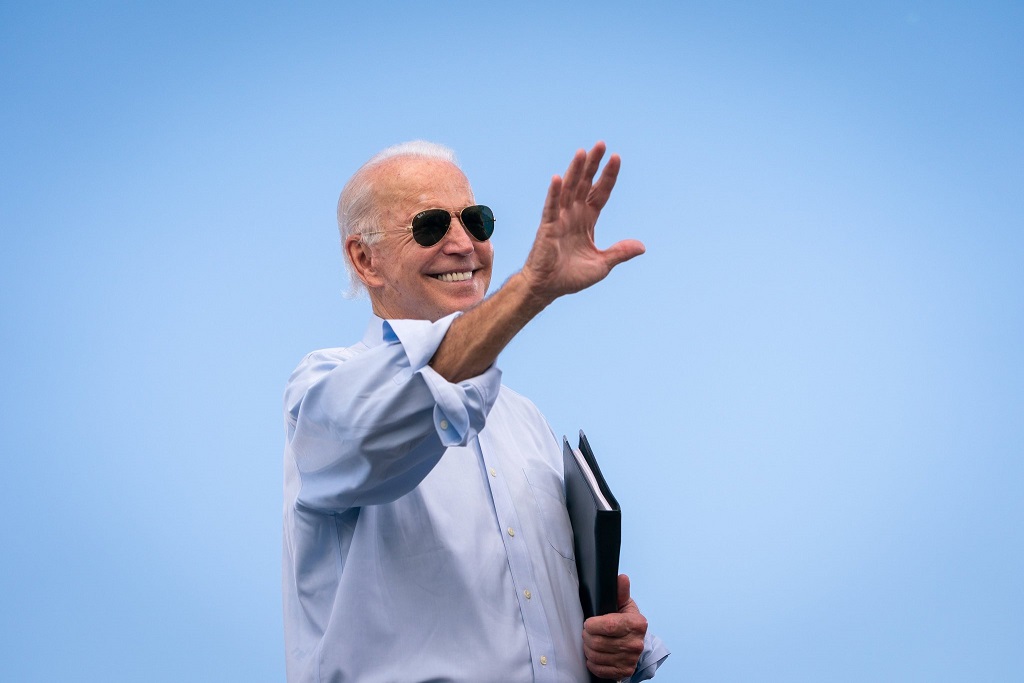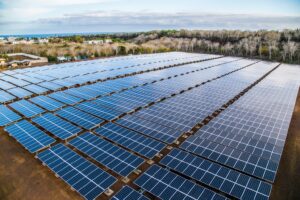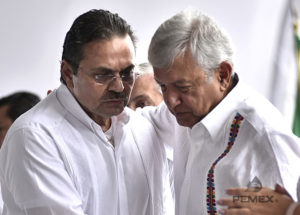
(CFR, 9.Mar.2021) — On March 8, the Biden administration gave the first real insight into its Venezuela policy, and the news was a mixture of good policy, politics, and nonsense.
The good policy was the announcement of Temporary Protected Status (TPS) for Venezuelans already in this country. That means the roughly 320,000 people covered will be able to stay here, and work, without fear of deportation back to Venezuela. This is a move the Trump administration should have made years ago.
After all, Trump and many other officials in that administration (including me) frequently decried the horrendous economic, social, and political conditions in Venezuela—conditions that led five million Venezuelans to leave their homeland. How could it be possible to make those statements, yet send people back there? In practice, we in the State Department kept pushing the Department of Homeland Security to stop deportations, and they kept telling us they were doing so. And in fact the number of deportations was low—but it was not zero, even though a freeze on deportations would presumably have been popular politically. The problem was anti-immigration ideologues in the White House, and the fear of them in the agencies.
That was why the Trump administration never did what it should logically have done, given its description of Venezuela, and provide TPS or “DED,” Deferred Enforced Departure, a similar move—until January 19, 2021. On its last day in office, the administration granted DED. Quite obviously, if DED was justified on January 19, 2021, it was justified on January 19, 2020 or 2019 and should have been granted then.
In a background briefing this week, Biden administration officials explained the current Venezuela policy. In addition to announcing TPS, they also repeated previous and fully justified criticisms of the Maduro regime in Caracas: “the President was the first democratic candidate to actually recognize Juan Guaidó as the legitimate leader of Venezuela and has been very clear that Nicolás Maduro is a dictator and that the May 2018 elections were fraudulent and illegitimate.” They also made two important points about negotiations: while the United States favors negotiations, first, “the negotiation is one that is not between the United States and the regime; it is between the illegitimate regime and the interim government of Venezuela. And the outcome is one that needs to lead to free and fair elections.” Second, they noted that “We’ve seen negotiations like these fail in the past. We’ve seen Maduro use them to — as a delay tactic to centralize power; to polarize the opposition; to — and to jail opponents; and to use — crack down on peaceful protesters. So we are very clear-eyed about, really, what the expectations — what the regime’s intentions and incentives are.”
All this is very good. But two additional messages were far less positive. Regarding sanctions, the officials left the clear impression that economic sanctions are going to be lifted. Here are the comments:
[T]he United States is in no rush to lift sanctions. But let’s — we need to recognize here that the unilateral sanctions, over the last four years, have not succeeded in achieving an electoral outcome in the country. Nowhere in the world have unilateral sanctions actually lead to a democratic transition in the absence of a multilateral and coordinated approach with — among the international community, which is what the previous administration failed to accomplish….
[W]hat we have clearly seen is that the regime has adapted to sanctions. Oil markets, long ago, have adapted to oil sanctions. And that — they are able to sustain themselves through illicit flows.
So really the — we could keep on with unilateral sanctions and stay in this situation for who knows how long. Or, actually, we could start sitting down with the international community to see how we can actually exert coordinated pressure and set clear expectations about the way forward.
That said, we’re going to review the sanctions to make sure that they are effective because the focus of sanctions should be to increase pressure on the regime, eliminate any sort of access to corrupt capital to sustain themselves, and — but also not one to — that penalizes and punishes unnecessarily the Venezuelan people in the country.
Any Maduro regime official, or oil company official, reading all that will likely start salivating at the prospect that sanctions are on the way out. If that is not the impression Biden administration officials wanted to leave, they should have spoken more carefully. There are already rumors about oil company executives and bond-holder representatives visiting Caracas, in the expectation that things will loosen up.
Finally, the Biden administration officials seemed completely unable to speak truthfully about previous international cooperation and coordination on Venezuela. They seem unable to resist what is really a tropism to call everything that went before on Venezuela a complete failure. Their only “bipartisan” gesture was ridiculous, stating that their decision to grant TPS—an executive decision taken by the President alone—was a “nonpartisan, bipartisan decision….” No it wasn’t; it was a decision by the President.
Worse yet was the nonsense about the previous lack of international cooperation. Under the previous administration, the Rio Treaty was invoked by the Organization of American States for the first time since 9/11. Canada and the EU imposed sanctions on Venezuelan officials. There were close and regular communications with major EU countries, the UK, and Canada. There was similar cooperation with Norway, which played a special role in convening negotiations in 2019. Moreover, when I as Special Representative for Venezuela consulted with Democrats in Congress, I found firm support for the policies we were following.
The statement by the Biden officials—referring to the “absence of a multilateral and coordinated approach with — among the international community, which is what the previous administration failed to accomplish” is gratuitous partisanship that will do absolutely nothing to advance either democracy in Venezuela or international cooperation. Could the Trump administration have done better, and can they? Perhaps, and a successful negotiation that leads Venezuela back to free elections is a goal all democrats should share. But an accurate understanding and depiction of the past is the best basis for building toward the future.
What those officials will soon find out is that they have no magic wand. If they genuinely think there was no international cooperation in the last four years, they misunderstand the challenges they face. Coordination of policy with, for example, Mexico, Argentina, and Bolivia, and with a number of CARICOM countries such as St. Lucia, was and will be quite difficult. And coordination with EU countries on sanctions will be painfully slow.
I wish them luck, and the TPS decision and clear denunciations of the Maduro regime are to be commended. But Venezuela was a bipartisan issue in the United States, and should remain so. Knocking off the gratuitous political attacks and seeking continuing bipartisan support is the better path forward.
____________________

